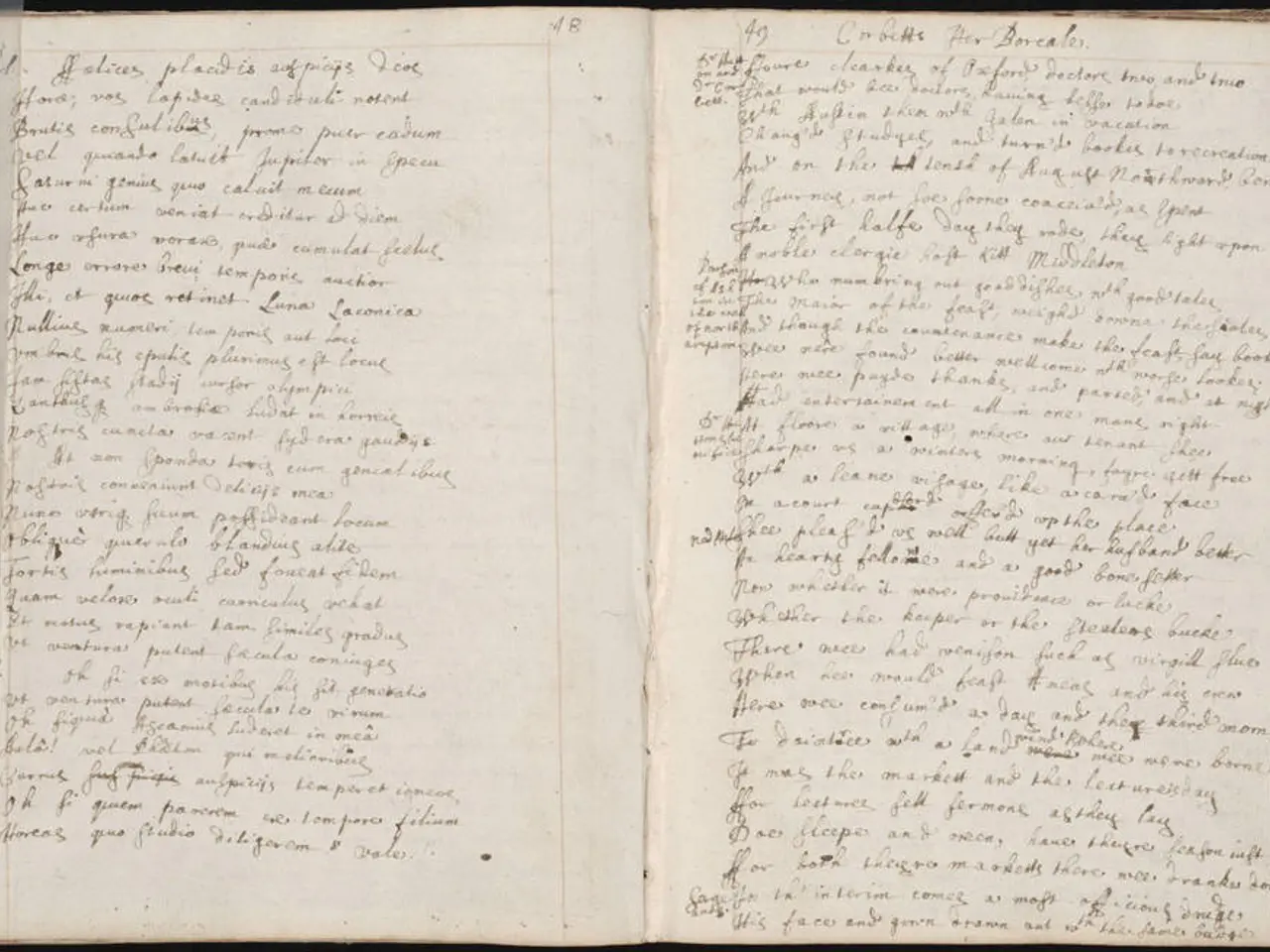Crafting an English Literature Essay: A Sequential Guide
For students seeking to excel in English Literature essays, following a structured approach is key. Here's a step-by-step guide to help you write well-structured and effectively communicated essays.
1. **Understand the Essay Prompt or Question** Thoroughly analyse the question to ensure your essay addresses the right topic and focus.
2. **Plan and Outline Your Essay** Organise your thoughts into a logical structure: introduction, body paragraphs, and conclusion. This helps maintain clarity and flow throughout your essay.
3. **Write a Compelling Introduction** Start with a hook to grab attention, provide necessary background information, and end with a thesis statement that clearly states your main argument or interpretation.
4. **Develop Body Paragraphs with Clear Topic Sentences** Each paragraph should begin with a topic sentence that states the main point of that paragraph. Follow this by detailed evidence (quotations, literary devices, analysis) to support your point.
5. **Consider Including Counter-Arguments** Depending on the essay question, addressing a contrasting viewpoint can demonstrate a deeper understanding and strengthen your overall argument.
6. **Write a Strong Conclusion** Summarise the key arguments made in your essay, restate how they support your thesis, and provide a final insight or reflection on the text’s significance.
7. **Revise, Edit, and Proofread** After writing your draft, revise for content, logic, and flow. Edit for grammar, punctuation, spelling, and formatting errors to ensure clarity and professionalism.
**Additional Tips for Success:** - Use precise literary terminology where appropriate. - Always explain the significance of your evidence—don't just quote; interpret it. - Maintain a formal academic tone without being too mechanical or overly casual. - Practice writing regularly to develop confidence and improve fluency.
Reading your essay out loud can help you spot awkward sentences and improve flow. Focus on themes, characters, or literary devices that you find compelling and that connect to the essay prompt. Use one or two well-chosen quotes per paragraph to support your argument, ensuring each quote is analysed thoroughly.
By systematically following these steps—careful planning, a focused thesis, structured paragraphs with detailed analysis, and thorough revision—you will produce a clear, insightful, and well-communicated English Literature essay.
- For a successful English Literature essay, it's crucial to engage in a thorough analysis of Shakespeare's works, focusing on critical thinking to understand the themes, characters, and literary devices.
- In the process of learning and self-development, education-and-self-development courses often provide guidance on how to structure essays, with a suggested outline that includes introduction, body paragraphs, and conclusion.
- When writing an introduction for your Shakespeare essay, strive to create a hook that captures the reader's attention, followed by a clear thesis statement that presents your main argument or interpretation of the text.
- As you develop body paragraphs, make sure each paragraph begins with a concise topic sentence, followed by detailed evidence, such as quotations or analysis, to support your point about the themes, characters, or literary devices in Shakespeare's works.




